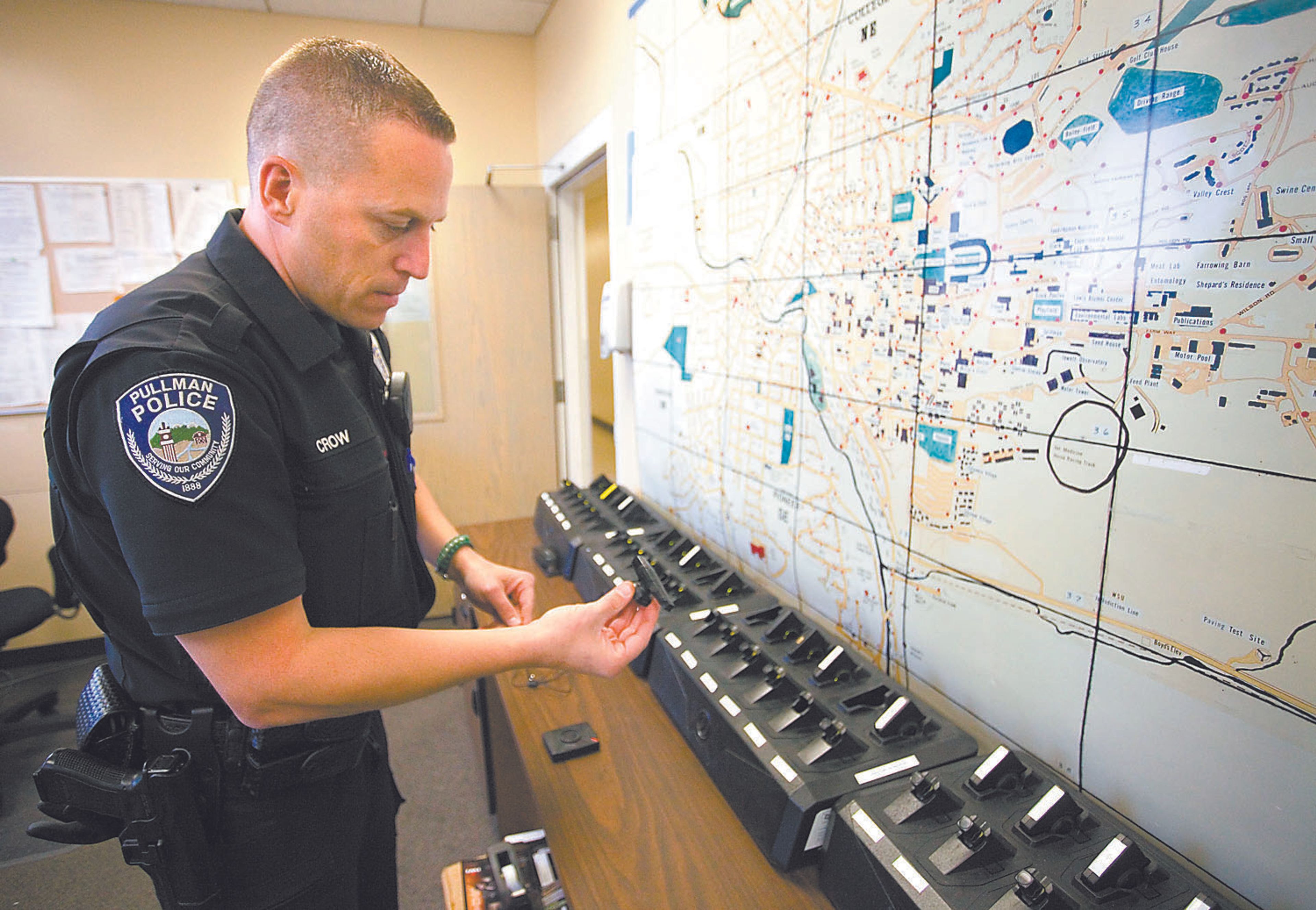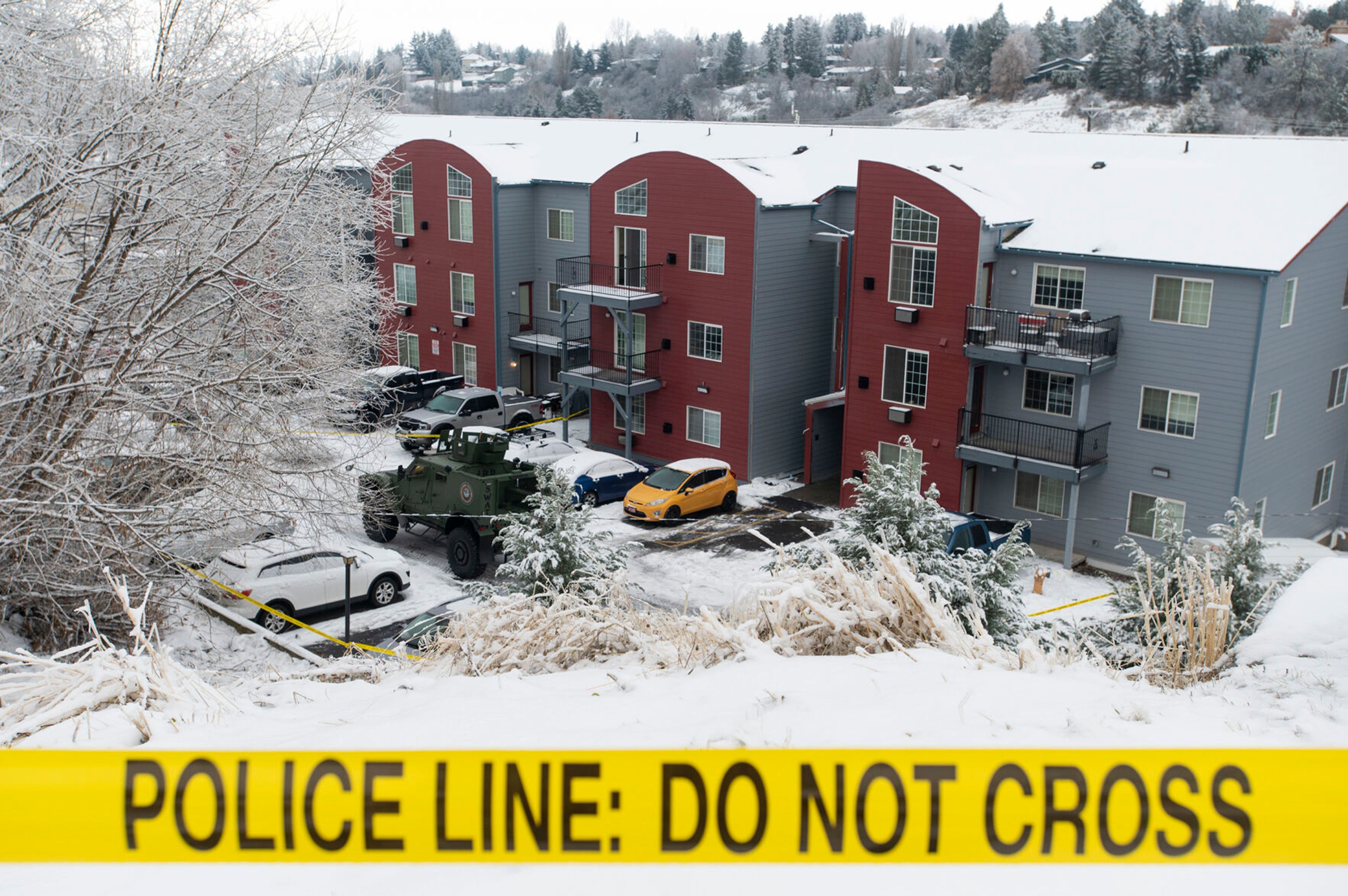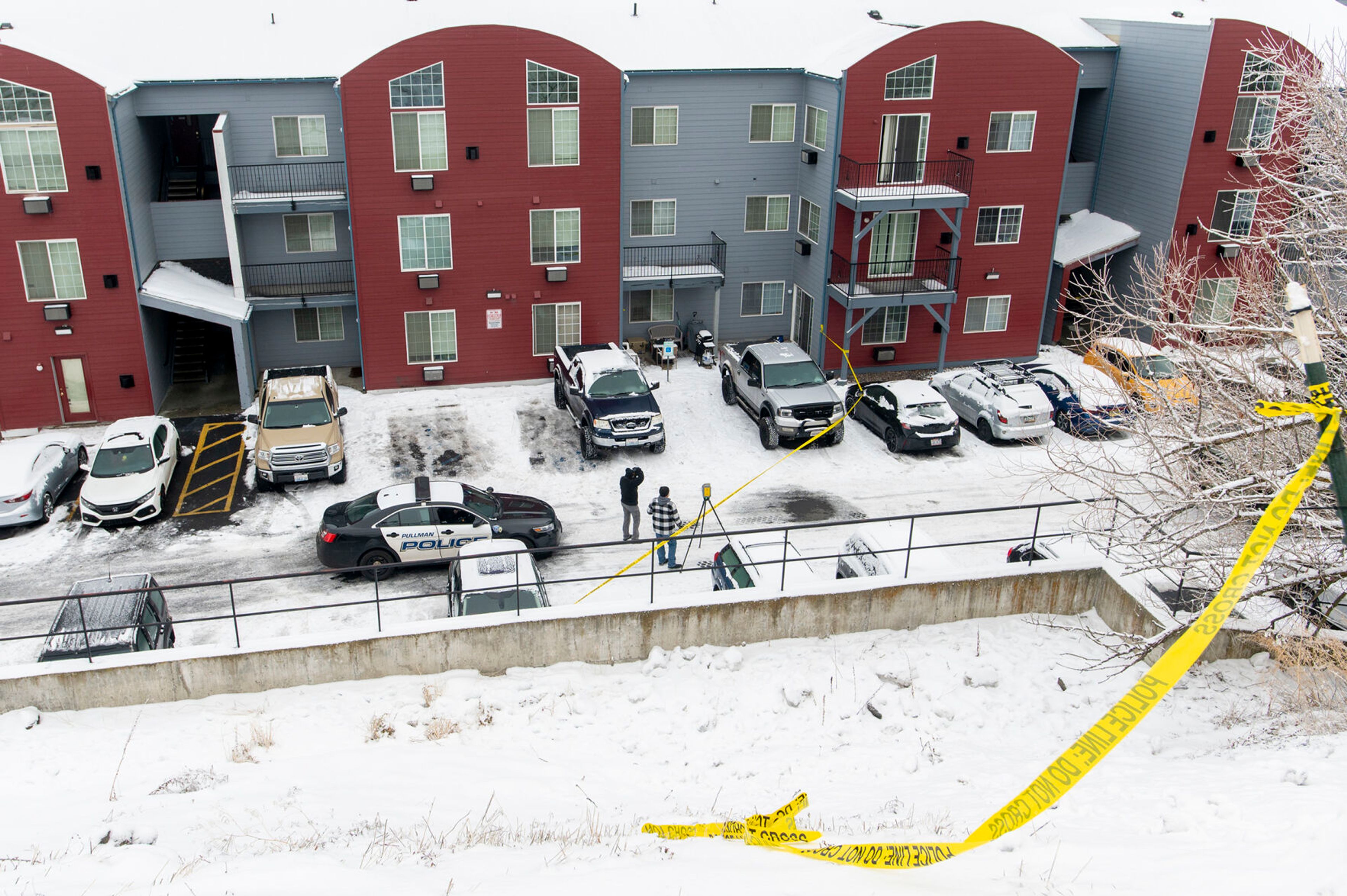Body cameras: The silent set of eyes for local police
Availability of body cameras varies for local police, but users enthusiastic
When police and public interact, body cameras are like an invisible set of eyes recording every movement.
After what happened in Ferguson, Mo., a lot of departments are looking to get body cameras, said Pullman Police Cmdr. Chris Tennant.
The Pullman Police Department has equipped its officers with the small body cameras since late March 2013, he said.
The Latah County Sheriff's Office, though, has had body cameras for nearly 10 years now, said Lt. Brannon Jordan.
The sheriff's office had them before most in our area, Jordan said.
"They have been worth their weight in gold to us," Jordan said. "We have no plans to abandon body cameras at all."
In Moscow, there are cameras in cars, and the officers carry audio recorders, although the police chief says body cameras are in his long-range plan.
The Whitman County sheriff wasn't available to discuss body cameras.
Along with the evidence-based benefits of the cameras, Jordan said, the
cameras change the way a deputy works with the public.
"It makes a difference when you know that it is on and know that it is recording; you tend to be a better cop," he said. "It makes you act as professionally as you can under extraordinary circumstances."
"In general, officers like the cameras," Tennant said.
It provides them with a second set of eyes to either be used in a report, an investigation of a citizen complaint or as evidence in a court case, he said.
"People don't care," he said. "It's not really considered a private conversation if you're talking to an officer outside in public."
Jordan also said they have not had any major backlash from the public regarding the cameras.
"No one has said a thing to us," he said.
Differing policies
Tennant said Pullman officers do have personal discretion to decide when to turn the cameras on or not, but it is recommended to have them on for any interactions.
"If you're talking to a victim in a sexual assault, that may not be a time to record," he said, but during routine traffic stops or approaching someone stumbling down the road, those are the times to turn it on.
Under the Latah sheriff's policy though, cameras should be turned on for any interaction, Jordan said. If a situation occurs and a camera was not turned on, a deputy will have something to answer for as far as the policy goes, he said.
"They are deputy-activated, but our policy mandates that every time they interact with a citizen they are to turn on their camera," he said. "There is no question as to what is said or what has transpired."
It has taken Pullman officers close to a year to form the muscle memory to remember to turn on the camera during each interaction, Tennant said. He said that is why having a second officer show up to most interactions is helpful, but this can also lead to citizen complaints if they feel like they are being ganged up on by police.
It used to be if a citizen complaint was filed, it turned into a "he said, she said" debate, but now the video can provide an accurate account of what actually happened during the interaction.
"One of the unique aspects is there is no editing capability," he said.
As soon as an officer hits the record button, the camera jumps back 30 seconds and everything form that point on is permanently recorded until the officer hits stop.
Technically, the camera is always running, but not always recording, that way if an officer witnesses someone drive through a stop sign they can hit record and the camera can back up 30 seconds, capture the violation and then continue on into the traffic stop, he said.
The equipment: Pullman
Pullman has 25 to 30 Taser Axon cameras, costing $800 per camera and battery pack. The software to store the videos on Evidence.com costs the department approximately $10,000 a year, Tennant said.
Videos tagged to specific cases remain in the system until the case is closed, and ones that are not tagged get automatically deleted after 90 days, he said.
"Is it worth it and worth the money spent? I would say, 'yes'," Tennant said. "It's hard to measure lawsuits that don't happen I'd rather have it and not use it, than not have it and need it."
If you prevent one lawsuit a year, they pay for themselves several times over, he said.
The goal, Tennant said, is for an officer to turn them on anytime they are interacting with the general public so there can be no questions later on as to what happened.
The cameras are not Hollywood level quality, but they are better than nothing.
The cameras are worn either on the lapel or collar of the shirt, on glasses or on a head band type piece of equipment. They are about 3 inches long and about 3/4 of inch wide.
Ideally, the camera will provide the most accurate view of what the officer is seeing and follow their movements. If an officer is running, the video will be shaky and hard to watch, but the context and the sound could still be helpful in the case, Tennant said.
The equipment: Latah
The Latah sheriff has a similar number of cameras for deputies, but theirs only cost $400 a piece. They did cost roughly double that 10 years ago though, Jordan said.
The VIDMIC cameras, are built into the shoulder microphone deputies wear, connected to their radios and can collect audio, video and still images, he said.
With the cameras built into the radio, we can assure they will always have it with them, Jordan said.
Latah's main problem, Jordan said, is "we don't have enough storage space for all the data we have collected."
"Non-event" recordings are only kept for a certain amount of time, but everything else is kept indefinitely, he said.
"Some of the videos we take can be pretty compelling," he said.
In Moscow, a budget issue
David Duke, Moscow police chief, said body cameras are in their long range plan as well, but it is a budget issue.
He said the department did look into body cameras about three years ago, but at the time were having problems with their vehicle cameras and decided to fix those before investing in body cameras.
Now, he said, they're considering replacing vehicle cameras with body cameras.
Moscow officers have audio recorders and cameras in their patrol vehicles, but it doesn't provide the full video capabilities that the Pullman cameras do.
"We currently carry recorders, but they are just audio," Duke said.
Videos aren't the ultimate solution because they don't provide a full 360 view of an interaction but it does provide more than just the audio recorders and stationary vehicle cameras do, he said.
"There is more transparency for what officers are actually doing and what is being told they are doing," he said. "The request will be made."
Samantha Malott can be reached at (208) 883-4639, or by email to smalott@dnews.com.








